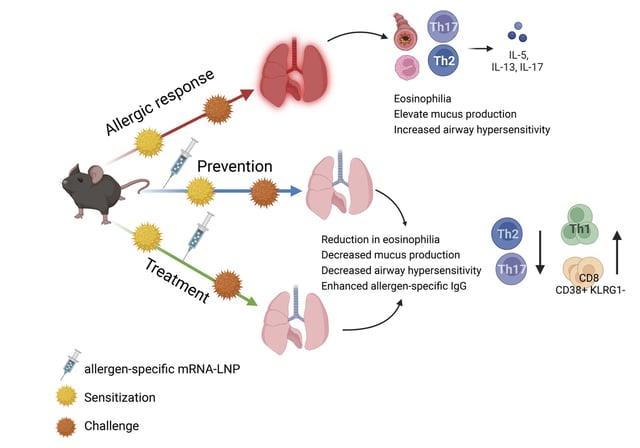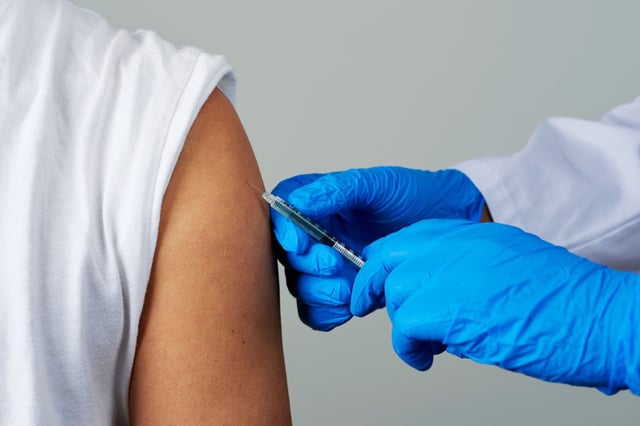Overview
- The University of Pennsylvania and Cincinnati Children's reported in the Journal of Clinical Investigation that allergen-specific mRNA lipid nanoparticle vaccines protected mice from allergic reactions.
- The platform adapts COVID-19 mRNA technology by encoding proteins that resemble targeted allergens to retrain immune responses without triggering allergy symptoms.
- Vaccinated mice showed no clinical reactions upon allergen exposure and displayed fewer allergy-related white blood cells, lower inflammatory signaling, less mucus, and protection against airway narrowing.
- Researchers say the approach could be tailored for seasonal and food allergies and may offer a faster, more flexible alternative to traditional allergen immunotherapy.
- Next steps include human safety testing, determining how many allergens can be combined per dose, and evaluating how long protection lasts, with support from the Food Allergy Fund and an NIH/NIDDK grant.

